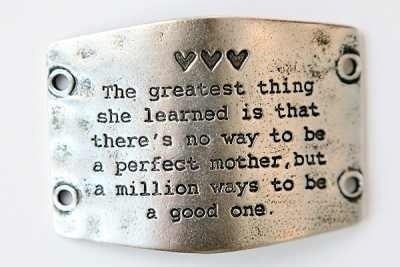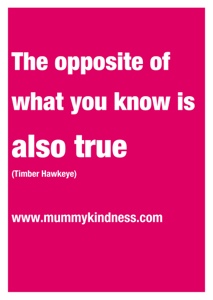I recently asked an online group of mums what advice they would give if they could send a letter back in time to their first-time pregnant selves;
“I’d tell myself to ignore the midwife who told me I’d be unable to breastfeed my baby because I’d had a caesarean. I bitterly regret listening to her advice, which I now know was totally inaccurate.”
“Please don’t bother with the colour-coded, detailed birth plan. What a waste of time. I felt such a sense of failure when I eventually had an epidural. I so wanted to have a natural birth and ended up with an emergency c-section. I still blame myself for not being able to do it without drugs”.
“I wish I’d had the confidence to ignore the pressure to breastfeed. I had so many strangers hands all over my poor boobs in those early days. The health visitor put so much pressure on me to breastfeed that I literally felt like I was being ‘milked’. It really affected how I bonded with my baby as I felt so resentful. I’d tell myself to listen to my instincts and trust my gut”.
How different our expectations are from the reality of pregnancy, birth and the early years.
What saddens me is that the feelings of disappointment and failure by these women (and myself) could have been diminished, if not avoided, if only we were more realistic in our expectations.
Of course I’m not suggesting that every birth is difficult and horrible, but let’s face it, very few births play out exactly as expected. Friends who planned beautiful drug-free water births had emergency c-sections, and a dear friend of mine who had planned on taking every drug available to her ended up suddenly delivering her daughter on the floor at home.
Ante-natal advice on breastfeeding is plentiful, but far less support is available for mums who bottle feed. Those unable to breastfeed can be left feeling inferior and inadequate against their lactating counterparts. Many women expect breastfeeding to be a beautiful and nurturing experience but sadly find the reality very different indeed.
Dr. K is a new mum who has kindly shared her story with me.
“I did not enjoy my pregnancy at all. Far from the blossoming, glowing, Mother Earth person I expected to be, I had significant health problems throughout, high blood pressure, a number of pre eclampsia scares, carpal tunnel syndrome and feet that became so oedematous I had to wear special shoes for the last 3 months of pregnancy. Then there was the weight gain. Society places huge pressure on women to look slim. I felt I should resemble a waif with an egg attached to my abdomen, not the whale I became.
I accept that it was my own expectations of myself to breastfeed that caused me to get incredibly emotional in those early days. I felt like a failure. Being unable to breastfeed made me feel utterly ashamed until a senior midwife pointed out that whether breast or bottle-fed my baby would gain weight and grow”.
It’s not just over-thinkers like me who feel like failures if things don’t go to plan. (Watch this space for my own breastfeeding story). Dr. K had a very difficult pregnancy, birth and feeding experience. Even extensive knowledge and medical training didn’t align her expectations with what eventually came to pass. Even doctors feel frightened and often disappointed with themselves in their first days as mothers.
Another doctor, Dr M also shared her experiences with me;
” Those first few months of having a newborn baby were the most difficult of my life, but at the same time, you adore this new baby and all you want to give it is the best. If someone had told me how hard it would be, I’m sure I’d never have done it.”
I don’t think I know one mother who could honestly say the newborn days were what she expected and I think we underestimate how formative the early days are on how we view ourselves as mummies.
My theory is that even from as early on as pregnancy, we set expectations that are altogether too high. Detailed birth plans, for example, are setting us up to feel like failures from the moment we give birth. Perhaps strong pressure to breastfeed when it simply may not work for us only serves to make us feel inadequate from the off.
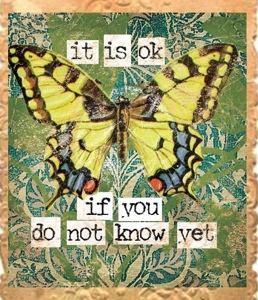
My view is that if we were all a bit more realistic with our expectations from the very beginning, we may realise and believe that our worth as a parent is not determined or measured by whether we managed to deliver a baby naturally or breastfeed exclusively for the first year (or countless other factors).
I think that there is definitely room for improvement when it comes to ante-natal care. Women need more information on what to expect in those tough early days as a new mum. Some organisations are fantastic and some aren’t. Similarly it can be a bit of a lottery as to whether you get a supportive Midwife or Health Visitor who will look at your situation in isolation and not just tow the party-line.
Dr. M further illustrates this point; “NCT and antenatal classes are partly to blame because they don’t tell you how hard the reality of having a newborn baby is. They focus on the delivery but what we really need to hear is ‘what do I do with this baby once I get it home?!’ Maybe they don’t want to scare us but I definitely believe there should be much more realistic ante-natal advice.”
There are also some fantastic postnatal groups out there, and I truly believe that they are equally important as ante-natal classes. I think so many of us could benefit from postnatal groups in which mums are encouraged to be really truthful with one another and where competition is actively discouraged. Two groups who have contacted me can be found here and here. If you run a postnatal group and you’d like to tell us about it, please feel free to leave a comment below with a link to your website.
A bit more honestly with our fellow new mums can go so very far. Admitting that those early days are tough, that breastfeeding can be both beautiful and excrutiating, that sometimes you wonder what-on-earth you’ve got yourself in to goes such a long way.
Now I’m not for a second suggesting that we accost every pregnant woman we see, terrify her with birth horror stories and bombard her with unsolicited advice. I don’t think this will help anyone.
However, sharing our experiences with truthful sensitivity can help new mums feel less like failures and more like true, authentic women who can only only do their best each day.
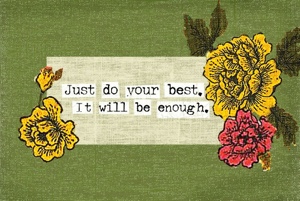
My letter to my thirty year old, newly pregnant self four years ago would say something like this:
Dear You
Mazeltov on your wonderful news!
You won’t enjoy pregnancy very much, but that’s OK. Lots of women feel like this too.
Several people will say you’re the biggest pregnant woman they’ve ever seen. Try not to be offended. It’s true.
Please do try to rest. You can’t stock-pile sleep as easily as you can lay down fat stores (sadly), but it will be several years before you feel properly rested again.
Keep an open mind about your birth. I don’t want to scare you, but when the midwife tries to send your husband home on the night that they induce you. Please don’t let him go.
Also, don’t bother buying any newborn clothes, there’s a very big boy in there.
Another thing… disposable knickers come up really small. Buy the biggest size you can find and avoid a very embarrassing shopping trip to Mothercare for your father-in-law.
It’s OK to sometimes feel a bit envious of friends who don’t have children yet and how they will sleep uninterrupted tonight. Everyone feels like this sometimes, but no-one talks about it.
If the house is too full of people sometimes, please politely ask them to leave. Allow your new family some private bonding time.
Oh, and you don’t know this, but there is such a thing as an over-stimulated baby. This is why he will sometimes scream for no obvious reason when there have been too many visitors.
Keep an open mind when it comes to feeding your baby boy and hold on to that for the next few years. The most important thing is that he and you are happy.
Please don’t compare yourself with other new mums. Do what works for you and let them do the same.
You will be the best mummy for your children and you will know them better than anyone else. Please remember this and have faith in yourself.
Love
You
I’ll leave you with these fabulous words from Dr M:
“What I’ve learnt having had two children is that it doesn’t matter how they are born, only that they are healthy. It doesn’t matter how they are fed, only that they are loved and looked after to the best of our abilities. Our worth as a parent is determined by how much we love and nurture our children, however we may do that”.
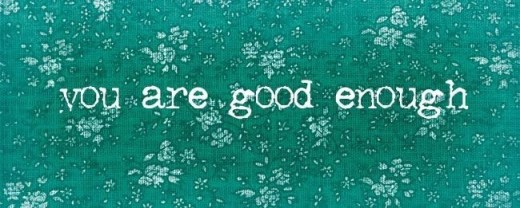
I’d be so grateful if you’d please “like” Mummy Kindness on Facebook to help spread the kindness far and wide.
I’m also on Twitter @mummykindness and I’d love to hear from you.
As always, please leave me a comment below with your thoughts.
All images are credited to the Brave Girls Club
An enormous thank you to the two brave and fabulous doctors who told their honest truths to a total stranger for the benefit of others.


